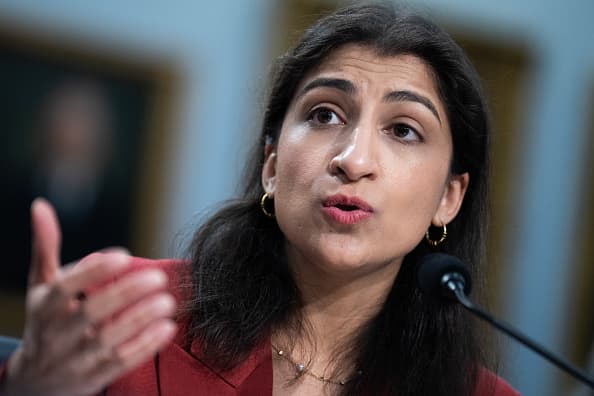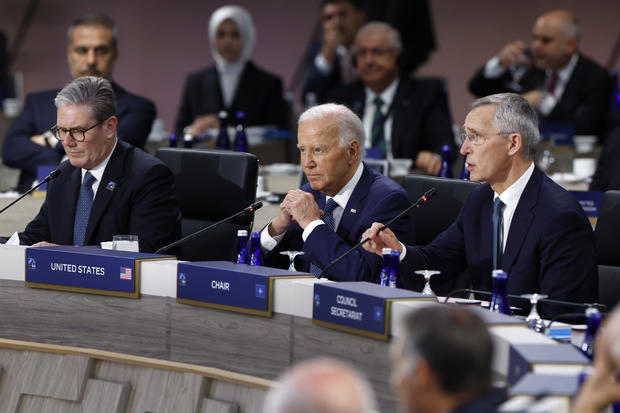
Federal Trade Commission Chair Lina Khan testifies during a hearing of the House Appropriations Subcommittee on Financial Services and General Government, May 15, 2024.
Tom Williams | CQ-Roll Call, Inc. | Getty Images
The Federal Trade Commission is planning to sue three large U.S. health companies over their practices as middlemen who negotiate prices for medications such as insulin, as the agency argues they inflate costs for patients, a person familiar with the matter told CNBC on Wednesday.
The suits are expected to target the three biggest so-called pharmacy benefit managers, UnitedHealth Group‘s Optum Rx, CVS Health‘s Caremark and Cigna‘s Express Scripts, the person said, confirming an earlier Wall Street Journal report Wednesday about the agency’s plans. All three are owned by or connected to health insurers.
The lawsuits will specifically focus on the business practices related to the rebates the pharmacy benefit managers, or PBMs, broker with drug manufacturers, the Journal reported, citing people familiar with the matter.
A CVS Caremark spokesperson said in a statement Wednesday that the company is “proud of the work we have done to make insulin more affordable for all Americans with diabetes, and we stand by our record of protecting American businesses, unions, and patients from rising prescription drug prices.”
A customer visits a CVS pharmacy store in Miami, Feb. 7, 2024.
Joe Raedle | Getty Images
An Express Scripts spokesperson said the “prices of insulin and other medicines are set by their manufacturers, who have raised list prices repeatedly.” The spokesperson said Express Scripts works to “combat the pharmaceutical industry’s high prices and lower the cost of thousands of medicines for patients and their health plans, and the data shows that we succeed.”
A spokesperson for Optum Rx did not immediately respond to a request for comment.
The FTC declined to comment on the reported lawsuits.
PBMs sit at the center of the drug supply chain in the U.S. They negotiate rebates with drug manufacturers on behalf of insurers, large employers and others. They also create lists of medications — or formularies — that are covered by insurance and reimburse pharmacies for prescriptions.
The FTC has been investigating PBMs since 2022. The investigation into insulin prices also examines drugmakers, but it is unclear whether they will be named in the upcoming lawsuits, Politico reported, citing people familiar with the matter. Eli Lilly, French drugmaker Sanofi and Danish pharmaceutical company Novo Nordisk control roughly 90% of the U.S. insulin market.
Pharmacist Thomas Jensen looks over a prescription drug at the Rock Canyon Pharmacy in Provo, Utah, on May 9, 2019.
George Frey | Reuters
The FTC on Tuesday released a scathing interim report based on the ongoing investigation into PBMs. The report accused the three largest PBMs of manipulating the drug supply chain to enrich themselves at the expensive of smaller, independent pharmacies and U.S. patients.
Six of the largest PBMs handled nearly 95% of the prescriptions filled in the U.S., the FTC’s report said.
PBMs contend that manufacturers are responsible for high drug prices, while drugmakers say rebates and fees collected by those middlemen force them to increase list prices for products.
The Biden administration and Congress have ramped up pressure on PBMs, seeking to increase transparency into their operations as many Americans struggle to afford prescription drugs. On average, Americans pay two to three times more than patients in other developed nations for prescription drugs, according to a fact sheet from the White House.
President Joe Biden’s signature Inflation Reduction Act has capped insulin prices for Medicare beneficiaries at $35 per month. That policy currently does not extend to patients with private insurance.

